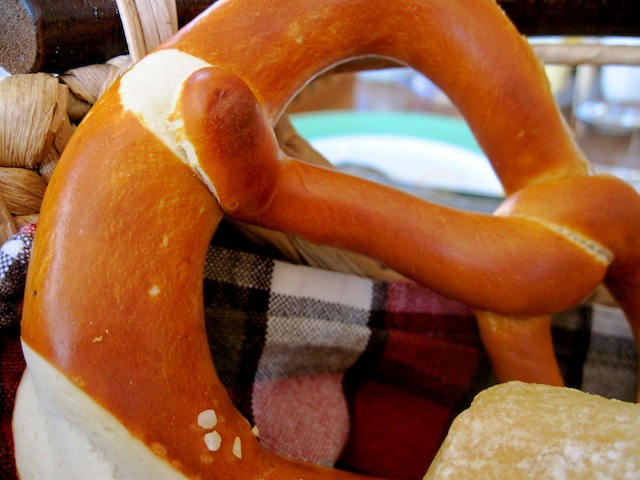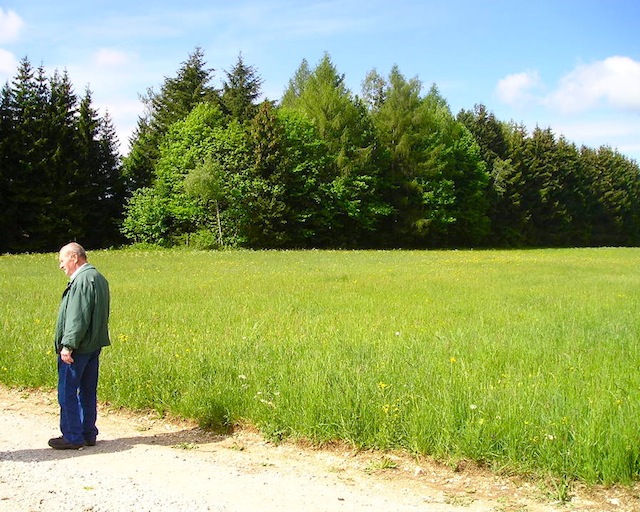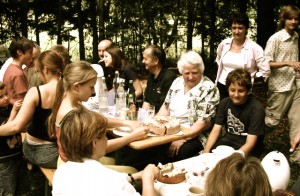
My great uncle had always been old. From the time I was young, he’d been the same Hansvetter – I remember him in a newsboy cap, a cigarette in his hand, his feet covered in slippers. He loved to watch the planes take off from Stuttgart airport. He lived nearby and kept his TV programmed to a bluescreen listing of departures and arrivals so he’d know which planes were heading where as he watched them fly into the sky. When I’d visit, he’d ask when I was leaving, what plane I’d be on and tell me he’d track me as I took off.
A few distinct memories recur when I think of my great uncle. Every time we came by he’d ask, in a slow, loud Schwäbisch drawl if we understood what he was saying. It can’t be reproduced in print, but it’s something like that joke about Americans speaking loud, slow English in foreign countries as if it turns their words into something other than loud, slow English. For Hansvetter, it was a question of whether we could understand his dialect. And no matter how many times we said, yes, this crazy south German dialect (incomprehensible to even many northern Germans) makes complete sense to us, he’d always shake his head astounded and say, “Well, you just speak such good German.”
Well, yes, we’ve been speaking it our whole lives.
I drove to the South this weekend for Hansvetter’s funeral. On my way there, I thought of how our language and our dialect works to shape our selves. Such a large part of why I’m in Germany is to understand myself as well in this language as I do in English. Yes, Hansvetter, I grew up speaking German, but in a way, you’re right – it’s a foreign language to me still. » Continue reading this post...


